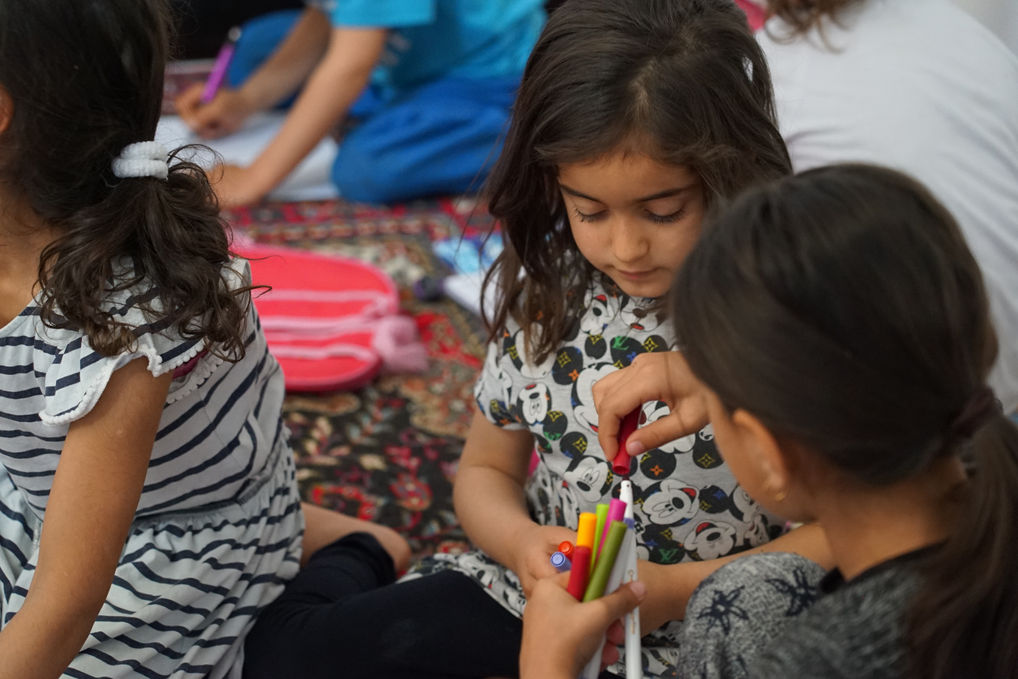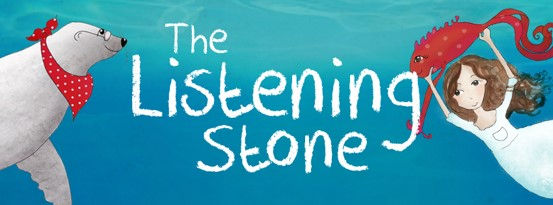The Listening Stone Programme

A social, emotional and mental health and well-being programme for children aged 5-11yrs

We are so excited to be able to offer you a brand new programme for primary school children. Included in the programme is a Facilitators guide, a puppet, Illustrated story book, Children activity book, A video theatre production of The Listening stone and 8 musical tracks that go with the programme.
The Listening Stone Programme (LSP) is an eight-week programme aimed for children in primary school who may have experienced trauma, loss, or bereavement. This could be due to abuse,neglect, conflict, war, displacement, or other adverse childhood experiences (ACEs). The programme has been developed to offer a safe, therapeutic, playful, and creative space for children. In this programme, children can explore, in a non-threatening way, the issues they’ve faced, or they can process difficulties they may have experienced. The programme has been designed for use in educational settings, and for charities or organisations working with vulnerable children in the UK or abroad as well as in tented settlement areas for refugees (child friendly spaces)

The Listening Stone
The Listening Stone is a story about a young girl called No-Name who is orphaned and swept out to sea where she is rescued and adopted by some special sea lions. Though she has no voice and no name, she finds happiness with her flippered friends. After a while she becomes restless and she longs to know who she is and where she came from. Then one day she hears a gentle whisper on the breeze, it grew louder and louder until she realised that the sea was singing to her. Little No-Name is drawn to its strange song so she dives into the crystal clear water and goes on a perilous journey of discovery to find out who she is and where she belongs.
The aims of the LSP are to help children improve their emotional, mental, and well-being, as well as to help them build their own resilience and sense of hope. The programme explores the themes in the story, The Listening Stone. We know from past experience and feedback that this story resonates well with young children. The programme provides an environment that is both safe and fun. Through the eight sessions, children learn about their need to have a sense of well-being and what resources they have to meet this need. They are also given the space to explore and express difficulties.
The eight sessions focus on issues and themes such as loss, friendship, identity, fear, anxiety, depression, resilience, hope, destiny, and purpose. The sessions are designed to help the children with the development of social and life skills. The programme also uses puppets, dance, and music specifically aimed at helping children with self-awareness and self-expression. The session activities are informed and underpinned theoretically by principles of dramatherapy, by Sue Jennings’ work on Embodiment-Projection-Role (EPR), and also by some of the latest research around trauma-informed practice and the effects of trauma on brain development. The feedback from children who have participated in the programme has been very encouraging.
This Programme has been created by Donna Jennings, founder/Director of For The Love of a Child and an HCPC Registered Dramatherapist/clinical supervisor and in conjunction with professor Divya Snape from Dundee University. The programme is targeted at primary school aged children, including those with special needs. It has been designed as a resource to help professionals meet certain requirements of the Curriculum for Excellence and Getting It Right for Every Child and to help schools be more trauma informed and aware of ACE’s.

The Listening Stone has government recognition and is currently being further evidence based with a research team research. The LSP has been delivered internationally, by both our teams and partnering organisations on the ground.
2024 LSP Impact
The Listening Stone Programme delivered in Iraq IDP camp 240 children went through our dramatherapy programme in Iraq over twelve months;
-
96% said they were less anxious about things.
-
96% surveyed said they felt more confident.
-
87.5% said they have more friends now.
The Listening Stone Programme delivered into Scottish schools, 52 Children received dramatherapy support.;
-
60% improvement in their psychosocial wellbeing.
-
30% improvement in emotional conduct.
The Listening Stone Programme delivered to newly arrived Ukrainian children in Scotland. 28 Ukrainian children received specialist dramatherapy support upon arrival.
-
80% improvement on their psychosocial wellbeing.
-
80% improvement in their emotional conduct & prosocial behaviour.
LSP Iraq film 2023 by Whole Heart International team

Case study
A young boy of 6 years old whose mother died when he was just four years old was taken into care (for the purpose of this case study we will call him James,
his name has been changed to protect his identity).
James had suffered neglect as a child. According to his foster carer the mother died in her sleep (APNEA) and James had been left with her body for 4 days on his own until he was found and brought into foster care. He was found in squalor, his mother had been very obese and had been found in her own excrement due to not being able to get to the bathroom. James does not know who his father is and has never met him.
Within the last 6 months James behaviour had become worse with anger and destructive behaviour, often breaking/throwing toys and his room. James presents as having a negative self-image and has feelings of worthlessness. He struggles with his relationship with food, as seen throughout the sessions due to neglect. He also struggles with physical boundaries and has difficulties in processing his emotions and shows chaotic and destructive behaviour.
During the group sessions James was very disconnected to his emotions, however as he became more relaxed especially around snack and story time he would make connections with the story, This was seen in one of the sessions after story time when he said “I’m Little No name , as I lost My mummy just like her''. This was a breakthrough for James, he had voiced very little in the group, and he was showing he was engaging emotionally about his loss through projection onto the Little No-name character, his awareness of the group was also improving as he was being able to communicate this to me and the group. He was also becoming more aware of when to say sorry to others. James was able to engage imaginatively and this helped him process safely some of his loss and neglect











